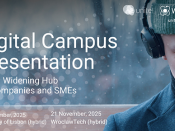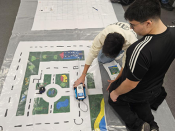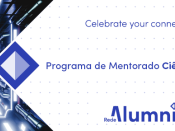Por Ruben Conceição (LIP).
Abstract: The simultaneous detection of a gravitational wave and gamma-rays and the observation of a high-energy neutrino connected with the emission of photons from a gamma-ray flaring blazar officially inaugurates the Multi-Messenger (MM) Era. These are exciting times as the study of these transient events will help to improve significantly our understanding about astrophysical sources and, with it, test the fundamental properties of our Universe.
Gamma-rays constitute one of the best probes to study our high-energy Universe and their collection in all energy ranges is of the utmost importance for performing MM studies. There are many experiments (satellites, Cherenkov telescopes, ground arrays) that contribute to survey the full energy range and sky coverage. However, there is an obvious gap: there is no wide field of view experiment in the Southern sky and, moreover, neither satellites nor ground based observatories can reach the 100 GeV energy region with good sensitivity.
LATTES is a hybrid detector experiment which aims to close this gap and work like a complementary to the powerful Cherenkov Telescope Array project to be built in Chile.
In this talk, I will give an overview of the status of the very high-energy gamma-ray field and present how the LATTES project can give an important contribute in this new MM era.
Short Bio: Ruben Conceição is a high-energy physicist and astrophysicist. He is currently a researcher in a Portuguese national organization for Particle and Astroparticle Physics (LIP) and invited professor in the physics department of Instituto Superior Técnico of the University of Lisbon.
He is an active member of the Pierre Auger collaboration since 2006, dedicated to the study of ultra-high-energy cosmic rays. He is also currently one of lead persons for the construction of a wide field observatory in the Southern hemisphere for the detection and study of high-energy gamma-rays.
His original scientific contributions have been mostly related with the study of high-energy hadronic interactions, understanding and modelling of extensive air showers and the conceptual development of innovative detection techniques and methods for cosmic ray physics.
He has been teaching high-energy particle physics and astroparticle physics in Master courses in the University in Lisbon and in several international PhD schools.
He has been a visiting scientist in Santiago de Compostela University and have periodic scientific stays in the Pierre Auger Observatory at Malargüe, Argentina.




















